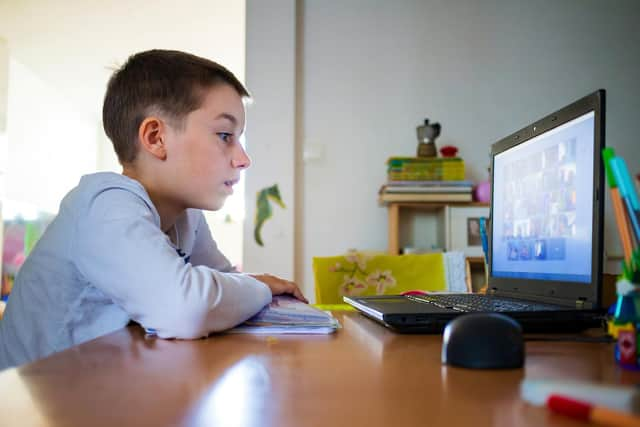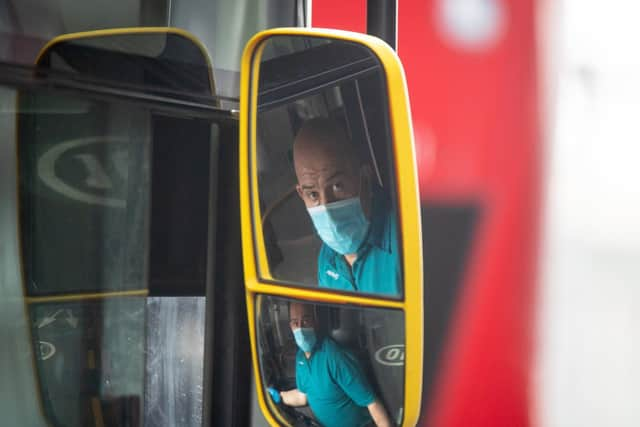University of Leeds joins £550m research programme to help shape fightback from COVID lockdown
and live on Freeview channel 276
From examining the impact of school closures and remote learning during lockdowns, to understanding the risks of coronavirus transmission on public transport, researchers and businesses in Yorkshire and The Humber are coming up with creative ways to beat COVID-19 and its effects in pieces of work funded by UK Research & Innovation (UKRI).
Yorkshire and The Humber’s leading universities have received significant UKRI funding for their input and there are three projects that the University of Leeds is looking at.
Advertisement
Hide AdAdvertisement
Hide AdOne is based around education and the research school is recruiting primary schools across the city to examine the impact of class cancellations and remote learning during lockdowns. By comparing pupils’ progress since the first lockdown using recent teacher assessments, the team is studying how the numeracy, literacy and language development of four and five-year-olds has been affected.


The university says that in reception, through adult-led instruction, children learn literacy, maths, and language skills which provide the foundation for later academic success. However, instruction during the lockdown period varied considerably and as a consequence, children are now likely to be on different developmental trajectories. For some, progress may have maintained or even accelerated but for others, progress may have stalled, and previously learned skills may have been lost.
In the short term, the findings from this will immediately benefit schools in deciding how to allocate catch-up support and in the long-term, findings will be conveyed directly to policy makers and third sector organisations, inform national strategies aimed at remediating the negative impacts of lockdown post-COVID-19, and addressing inequalities in the event of future disruption to schools.
Another hard hit sector is culture and the arts. With the closure of venues and museums, lockdown has had a major impact on the cultural industry. By tracking how the sector has been affected and how audiences have adapted to digital spaces, the University of Leeds has been leading on a project and collaborating with researchers across the UK.
Advertisement
Hide AdAdvertisement
Hide AdThis work will create a national picture of both the immediate and long-term implications and by assessing the impact of intervention packages it aims to inform policy for the recovery of the sector.


Professor Catherine Noakes from the University of Leeds said: “Our funding from UKRI was integral to the development of our project. Our team is leading a study to understand the risks of COVID-19 transmission on public transport. We hope our findings will enable transport operators to identify the risks of passengers getting COVID-19 and make informed decisions from that data.”
Meanwhile, researchers at the University of York want to understand how people with mental health problems have been impacted by the pandemic so are working directly with those people affected to gather their views. The results will be used to make recommendations for supporting people with severe mental illness during a pandemic.
These projects are among 3,600 new COVID-19 projects, totalling over £554m being funded by UKRI across the country in response to the pandemic.
Advertisement
Hide AdAdvertisement
Hide AdProfessor Charlotte Deane, COVID-19-Response Director at UKRI said: “Looking back over the past year, it’s clear that the pandemic has had a devastating impact on so many aspects of our lives, but I take more than a glimmer of hope from the extraordinary work being undertaken by researchers and businesses across the UK. These projects are just the tip of the iceberg. They show the tenacity and creativity of our research and innovation communities in Yorkshire and The Humber and beyond, who have stepped up in the most challenging of times to come together and fight back against this devastating disease.”